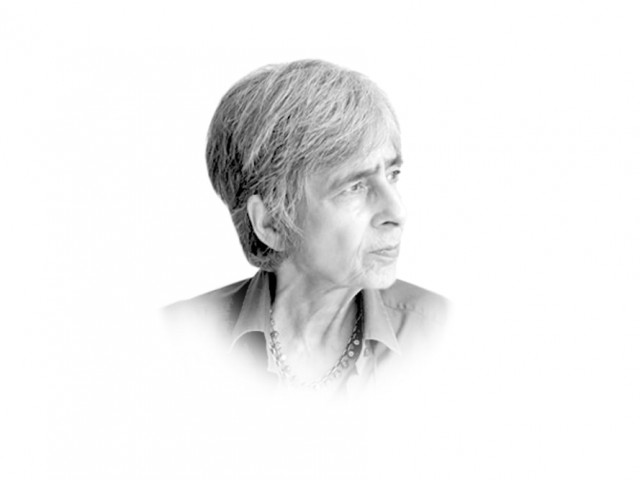‘Los desaparecidos’
The issue of the disappeared involves serious breaches of ‘hallowed’ Constitution of Pakistan, of international law.

But then, rather than lament as did Madame Roland in 18th century France about the crimes committed in the name of liberty, we may ask ‘O democracy! O democracy! What crimes are committed in your name?”
Well, as far as the vaunted land of the pure is concerned, the list is fairly weighty — always remembering that it is not alone. In today’s world, some amidst the community of established democracies are guilty of crimes against democracy. That laws exist on this country’s statute books that are an affront to democracy — which denotes tolerance, non-discrimination and a host of other desirable attributes — is well known; those which promote violence, sectarian and gender-based, being at the forefront.
One highly undemocratic practice, which arises sporadically, is the case of the missing persons — the ‘disappeared’ of Pakistan. This is nothing new. It first arose in the Supreme Court in 2006, after enforced disappearances had multiplied in the wake of 9/11. A mother and wife, unrelated, joined forces and filed a petition in the Court against the ‘disappearances’ of their son and husband, and other missing relatives and friends. (Whether the son was recovered is not known but the husband remains missing.) A list of 41 persons was submitted. That year, the Human Rights Commission of Pakistan reported that a total of 242 persons were on their list of the ‘disappeared’ — probably highly understated.
Since then, the Supreme Court under Chief Justice Iftikhar Muhammad Chaudhry has taken up and put down cases related to enforced disappearances, which under the façade of a democratic government, continues to rise. In 2010, the government was ordered to form a commission to look into the cases of enforced disappearances, which by that time had reportedly risen to 1,600, most picked up by those shadowy bodies known as the ‘agencies’ and the majority in the unfortunate, unhappy province of Balochistan.
But it is difficult to figure out exactly what is what, as figures released by the various commissions and authorities tend to confuse. Last month, again reportedly, the government-formed commission came up with a figure of 80 disappearances brought to their notice during the past three months, bringing the total number then before it to 852. What has happened to the remainder of the 1,600 since 2010 is not clear. However, a total of 80 over a three-month period is certainly a healthy tally. The ‘agencies’ are obviously hard at it, and as with all matters involving the military — the ‘real’ power in the land — there seems to be little that either Court or government can do about it other than grin and bear it.
Then, of course, there is the matter of will — can’t help helplessness. When the UN Working Group on Enforced or Involuntary Disappearances visited Pakistan in September, Chief Justice Chaudhry declined to meet its members. The government ‘acknowledged’ the fact that instances of enforced disappearances have happened frequently and continue to happen, but, as stated by the Working Group after their rather unfruitful visit, “there are controversies both on the figures and on the nature of the practice of enforced disappearances.”
The issue of the disappeared involves serious breaches of the ‘hallowed’ Constitution of Pakistan and of international law. It involves not only the fate of hundreds of citizens entitled to the due process of law, but also the devastating effect on their families. Article 4 of the Constitution provides that “to enjoy the protection of law and to be treated in accordance with law is the inalienable right of every citizen, wherever he may be... ”.
Published in The Express Tribune, November 3rd, 2012.















COMMENTS
Comments are moderated and generally will be posted if they are on-topic and not abusive.
For more information, please see our Comments FAQ